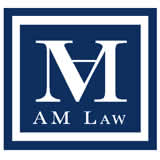A Chapter 7 or liquidation bankruptcy is when a debtor files a petition with the Court asking that their legal debt obligations be discharged. In return, the debtor usually gives up property. Filing for bankruptcy is complex and is not simply telling to a judge that you have no money.
In Florida, before filing for Chapter 7, debtors must pass a means test. This test shows the debtor’s income level and disposable income compared to the state’s median income. If the debtor fails the means test they are unable to file for Chapter 7 bankruptcy but may qualify for Chapter 13 bankruptcy.
Next, a debtor must pass the good faith test. The good faith tests whether you filed bankruptcy in order to abuse the system. The U.S. Trustee, or any creditor, may request that the bankruptcy court dismiss your Chapter 7 petition if this test is failed.
In a Chapter 7 bankruptcy filing, exemptions allow filers to keep some or all of their property. A filer is allowed to use Florida’s exemptions if they have lived in Florida for at least 730 days prior to filing for bankruptcy. The following property is generally exempt in Florida and would not need to be surrenderedin a Chapter 7 bankruptcy:
- Homestead exemption: This allows a filer to exempt the value of his or her primary residence, so long as the filer has owned the property for at least 1,215 days prior to filing for bankruptcy.
- Wages exemption: The head of a family’s wages are exempt up to $750 per week. This covers both paid and unpaid wages that have been deposited in a bank account within the last six months.
- Personal property exemption: This exemption allows a single filer to keep up to $1,000 worth of personal property, which includes furniture, art, and electronics. If spouses file for bankruptcy, this exemption increases to $2,000. If a filer chooses not to claim the homestead exemption, he or she may exempt up to $4,000 of personal property.
- Savings accounts exemptions: In general, education savings, hurricane savings, prepaid medical savings and health savings accounts are exempt.
- Pensions exemptions: ERISA-qualified retirement plans (such as 401(k)s, 403(b)s, profit sharing plans, and SIMPLE IRAs are completely exempt, as are benefits paid under the Florida Retirement System, State and County officers and employees retirement system, firefighter pensions, municipal police pensions, and teachers’ retirement benefits. Up to $1,171,650 from IRAs and Roth IRAs are exempt.
- Public benefits exemptions: Unemployment benefits / reemployment assistance, local public assistance benefits, veteran’s benefits, and social security benefits are exempt. In addition, federal government employees’ pension payments that are necessary for the support of the filer and that were received three months prior to filing for bankruptcy are exempt.
- Alimony and child support exemptions: Alimony and child support that is reasonably necessary for the support of the filer and any of the filer’s dependents are exempt.
- Insurance exemptions: The proceeds of a life insurance policy made payable to a specific beneficiary are exempt, as is the cash surrender value of a life insurance policy and the proceeds of an annuity contract. Disability income benefits and fraternal society benefits are also exempt.
- Miscellaneous exemptions: Workers’ compensation benefits and crime victims’ compensation benefits are exempt. Monetary damages paid to an employee for an injury or death that occurred while employed in a hazardous occupation is exempt.
